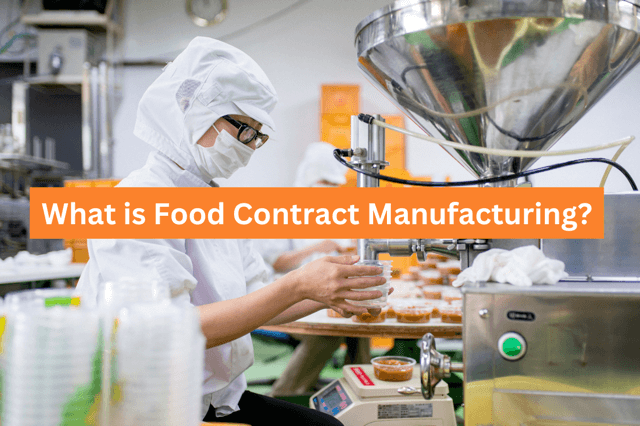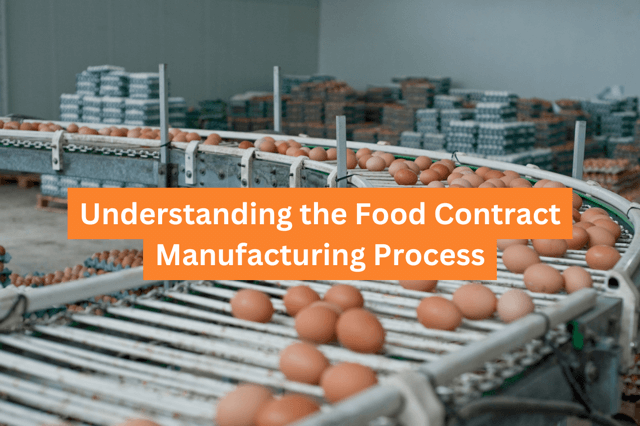Navigating the world of food contract manufacturing can feel overwhelming, but choosing the right food contract manufacturer is crucial to ensuring product quality, efficiency, and scalability.
Whether you’re launching a new product or expanding an existing range, understanding the manufacturing process and knowing what to look for can save time, money, and potential headaches.
At Startup FMCG, we’ve helped many Australian food and beverage brands bring their products to market. Anthony Harb, founder of Startup FMCG, has over 30 years of experience launching and scaling 1,000+ successful products, from small local startups to major FMCG brands.
In this guide, we’ll cover:
 What food contract manufacturing is and why it matters
What food contract manufacturing is and why it matters
 How to choose the right food contract manufacturer in Australia
How to choose the right food contract manufacturer in Australia
 Key steps in the food manufacturing process
Key steps in the food manufacturing process

Food contract manufacturing is when a business partners with a third-party manufacturer to produce food or beverage products on their behalf.
It allows brands to focus on product development, branding, and marketing while the food contract manufacturer handles production, compliance, and logistics.
Why Businesses Use Food Contract Manufacturing
- It reduces costs by eliminating the need to invest in expensive production facilities.
- Manufacturers handle regulatory compliance, ensuring all food safety standards meet FSANZ (Food Standards Australia New Zealand) requirements.
- Production capacity can be scaled up as demand grows, allowing for more efficient business growth.
- Outsourcing manufacturing frees up time to focus on marketing, distribution, and customer engagement.
How to Choose the Right Food Contract Manufacturer
1. Define Your Product Requirements
Before searching for a food contract manufacturer, clarify:
 Product Type & Ingredients
Product Type & Ingredients
Does the manufacturer have experience with your food category (e.g., beverages, snacks, frozen foods)?
 Certifications Needed
Certifications Needed
Do you require organic, gluten-free, halal, or kosher certifications?
 Production Capacity
Production Capacity
Can they scale production as your brand grows?
 Packaging Capabilities
Packaging Capabilities
Can they accommodate your preferred packaging format and materials?
2. Assess Their Industry Experience & Reputation
Look for a food contract manufacturer with:
- Proven experience in your food category
- Positive client reviews & case studies
- Strong quality control & food safety track record
Pro Tip: Visit their facility or request samples to evaluate production quality before committing.
3. Verify Certifications & Compliance
A reputable food contract manufacturer in Australia should meet industry standards such as:
- HACCP and GMP certifications, which establish strict food safety compliance protocols to minimise risks in food production.
- FSANZ (Food Standards Australia New Zealand) approvals, ensuring that all food products meet Australian regulatory requirements before reaching the market.
- Third-party audits and certifications, such as organic, fair-trade, or allergen-free processing, which provide additional quality assurance and help brands meet specific consumer demands.
4. Understand Minimum Order Quantities (MOQs) & Costs
Most food contract manufacturers have minimum order quantities (MOQs) that impact your budget and inventory strategy. Key cost considerations include:
 Raw Material Sourcing
Raw Material Sourcing
Ensure the manufacturer can source high-quality ingredients at competitive prices.
 Packaging and Labelling
Packaging and Labelling
Check if they can meet your design and sustainability requirements.
 Storage and Distribution Logistics
Storage and Distribution Logistics
Ask whether they offer warehousing or can connect you with distributors.
Pro Tip: Ensure pricing aligns with your growth projections and market demand.
5. Evaluate Their Flexibility & Communication
Strong communication is key when working with a food contract manufacturer. A reliable manufacturer should be transparent about production timelines and capacity to help businesses avoid delays. They should be flexible with recipe adjustments and new product development, allowing brands to innovate as needed. A good manufacturing partner should be proactive in resolving production challenges, ensuring minimal disruptions to supply and operations.
 Red Flag: Poor communication can lead to production delays and quality control issues.
Red Flag: Poor communication can lead to production delays and quality control issues.

It typically involves the following key stages:
1. Product Development & Testing
 Recipe refinement, ingredient sourcing, and sample testing to ensure product viability.
Recipe refinement, ingredient sourcing, and sample testing to ensure product viability.
2. Regulatory Approvals & Compliance Checks
 Ensuring packaging, labels, and product claims meet FSANZ and legal requirements.
Ensuring packaging, labels, and product claims meet FSANZ and legal requirements.
3. Manufacturing & Quality Control
 Large-scale production with strict quality assurance checks throughout the process.
Large-scale production with strict quality assurance checks throughout the process.
4. Packaging & Labelling
 Choosing materials that align with branding and Australian food safety standards.
Choosing materials that align with branding and Australian food safety standards.
5. Logistics & Distribution
 Finalised products are stored, shipped, or delivered to wholesalers, retailers, or direct-to-consumer channels.
Finalised products are stored, shipped, or delivered to wholesalers, retailers, or direct-to-consumer channels.
Beyond Manufacturing: Ongoing Mentoring & Support
Choosing a food contract manufacturer is just one part of building a successful food business. Beyond production, brands must focus on marketing, distribution, and business strategy to scale effectively.
At Startup FMCG, we provide ongoing mentoring and strategic support through our Startup Mentoring Services to help businesses navigate product development, food contract manufacturing, and scaling in the FMCG space.
 Need help choosing the right food contract manufacturer?
Need help choosing the right food contract manufacturer?
Book a free consultation with our team today!